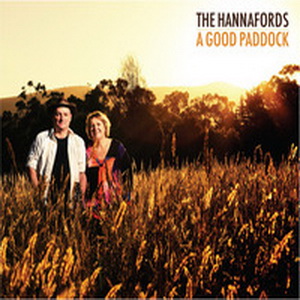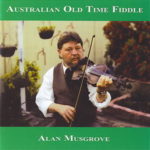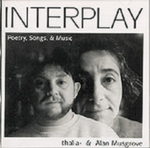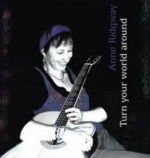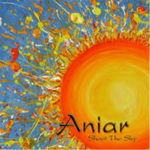Description
Craig & Auriol Hannaford have proved that perseverance is one of the keys to making your music standout.
On this, their third release, I found an “organic” sense about “A Good Paddock”. I enjoyed listening to the use of guitar, banjo, violin and mandolin etc which gave it a true acoustic feel. In doing so, it complimented very well the types of stories being told in the songs.
Auriol, as the main singer, has a real sense of honesty in her voice. Having listened to previous work I believe her strengths lie in this style of music where she comes across vocally comfortable.
The title track – A Good Paddock, A Better Way, Have a Go and Cliff the Cabbie are my favs with good storytelling lyrics getting you in.
This duo work hard to get their message across and deserve credit as Indie artists. They are embracing all avenues available to them to get people listening to their story and it’s a good story to tell.
CD review by Tony Smith
The Hannafords found some good soil for earthy sounds and homely lyrics in this album.
With simple but beautiful arrangements, the 11 songs (10 are their compositions) are clear and enjoyable.
The Hannafords write songs about themselves and real people they meet.
Their style is unsentimental and non-judgmental.
In their humble vein, Craig and Auriol Hannaford thank ‘team Hannaford’.
Rachel Blake (fiddle, vocals and arrangements) and the late Hugh McDonald rate special mentions.
McDonald played instruments (bass, mandolin, mandola, various guitars and violin) and sang harmonies as well as being on recording, mixing and mastering duties at his studio.
Auriol is the main vocalist while Craig supplies guitar and banjo.
They are self-deprecating in SFOG (short, fat, old guys).
‘We are the short fat old guys and we just do our thing/ he plays banjo like guitar and me I like to sing’.
Despite having no special training and no ‘fancy pantsy licks’, they manage very well indeed on Auriol’s splendid voice and Craig’s supportive guitar.
‘A Good Paddock’ reveals modest ambitions about a peaceful life.
‘Find me a good paddock/ with grass that’s long and sweet/ where I won’t want what I don’t have/ where every day’s a treat’.
That simple philosophy is a recipe for happiness.
In ‘Blue Southern Skies’, Auriol expresses her appreciation of living where she does and notes that others ‘just like me’ enjoy the same skies.
‘The Gift’ concerns the birth of a baby and its growth away from dependence on the mother.
‘I’ll be there when you want me/ I’ll be there when you don’t’.
Parents do not stop worrying about their children no matter how old they are.
‘Mary Blue Eyes’ who stands ‘four foot six in her ninety-ninth year … remembers the past as if it’s today’.
Her story is simple enough.
In England, she wanted to marry cousin Harry but her father forbade the match.
Harry migrated to Australia and had a family, but his wife died, so he wrote to Mary, and despite the gap of thirty years, she answered his call.
They were ‘fifty years married and no regrets’.
‘Cliff the Cabbie’ also tells the story of families separated.
‘He’s a London cabbie and at times, a real Aussie mate’.
‘Have A Go’ warns that doing so can be life-changing.
‘The Visitor’ tells of a casual relationship in which ‘they’d loved all their life in one night’.
‘A Better Way’ shows compassion for asylum seekers.
‘I know that folk are different and not everyone can stay/ I’d like to change the process and find a better way’.
American, John Prine, wrote ‘Paradise’ for his father.
It concerns the devastating impact of strip mining for coal.
Prine died in 2020 after developing Covid symptoms.
‘That Day’ describes the terror of the Kinglake fires and the resilience of residents who ‘heal the heart, start over again’.
A Good Paddock has an earthy Australian sound and raises important social issues.
I rate this album very highly.
